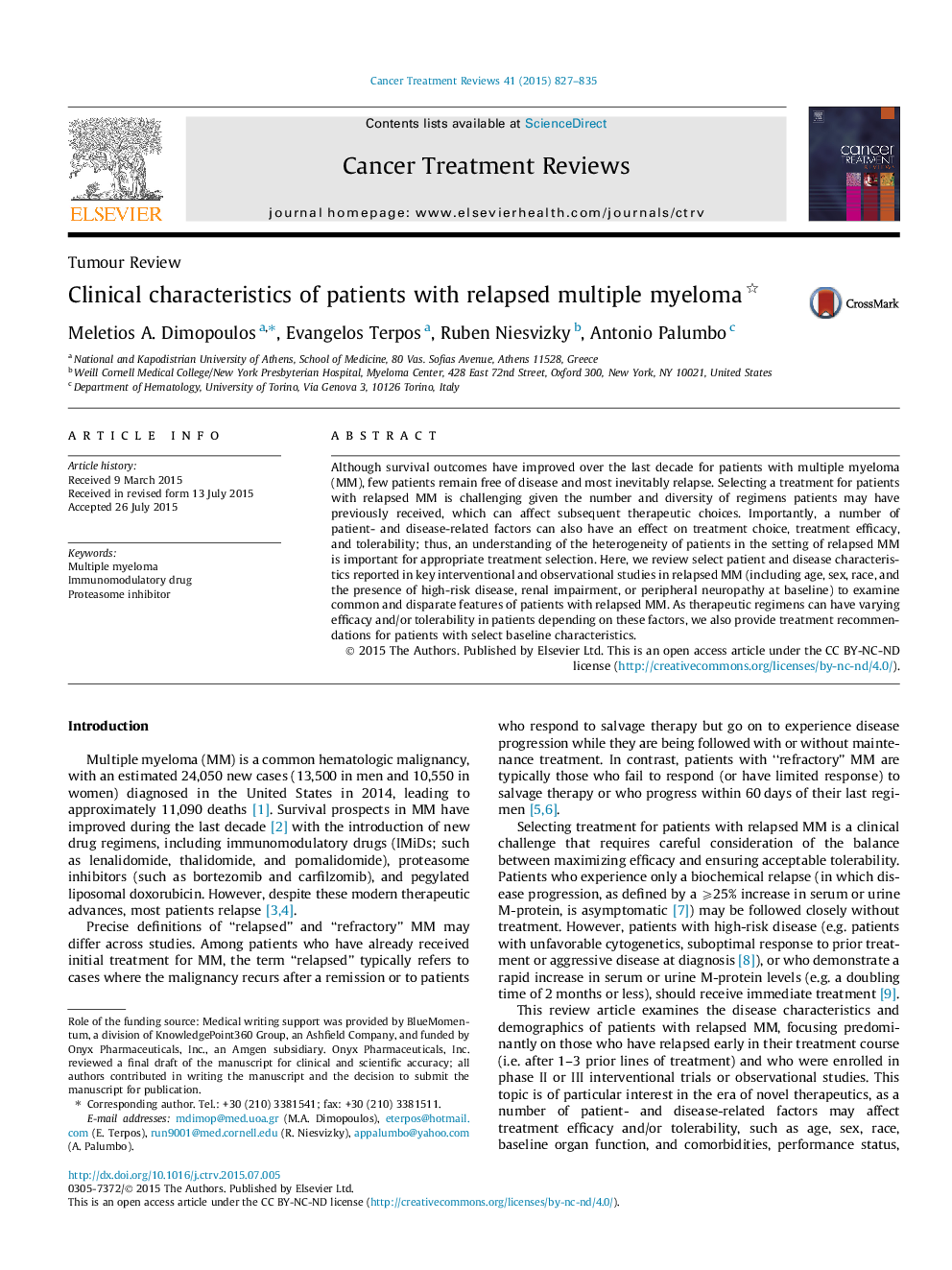| Article ID | Journal | Published Year | Pages | File Type |
|---|---|---|---|---|
| 6190398 | Cancer Treatment Reviews | 2015 | 9 Pages |
â¢Patients enrolled in relapsed myeloma studies comprise a heterogeneous population.â¢Differences across studies may reflect varying trial enrollment criteria.â¢Awareness of a patient's unique clinical features can help guide treatment choices.
Although survival outcomes have improved over the last decade for patients with multiple myeloma (MM), few patients remain free of disease and most inevitably relapse. Selecting a treatment for patients with relapsed MM is challenging given the number and diversity of regimens patients may have previously received, which can affect subsequent therapeutic choices. Importantly, a number of patient- and disease-related factors can also have an effect on treatment choice, treatment efficacy, and tolerability; thus, an understanding of the heterogeneity of patients in the setting of relapsed MM is important for appropriate treatment selection. Here, we review select patient and disease characteristics reported in key interventional and observational studies in relapsed MM (including age, sex, race, and the presence of high-risk disease, renal impairment, or peripheral neuropathy at baseline) to examine common and disparate features of patients with relapsed MM. As therapeutic regimens can have varying efficacy and/or tolerability in patients depending on these factors, we also provide treatment recommendations for patients with select baseline characteristics.
